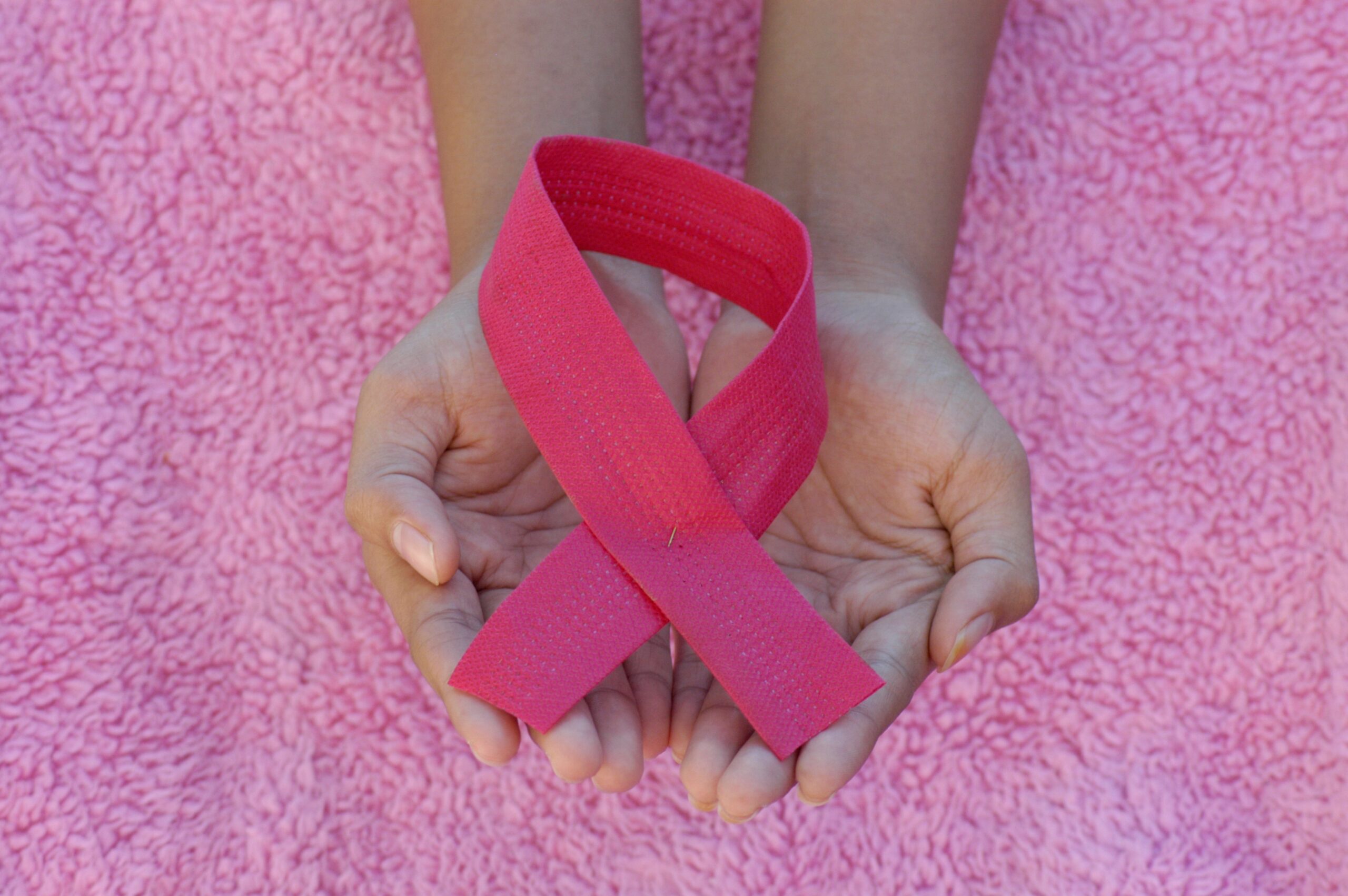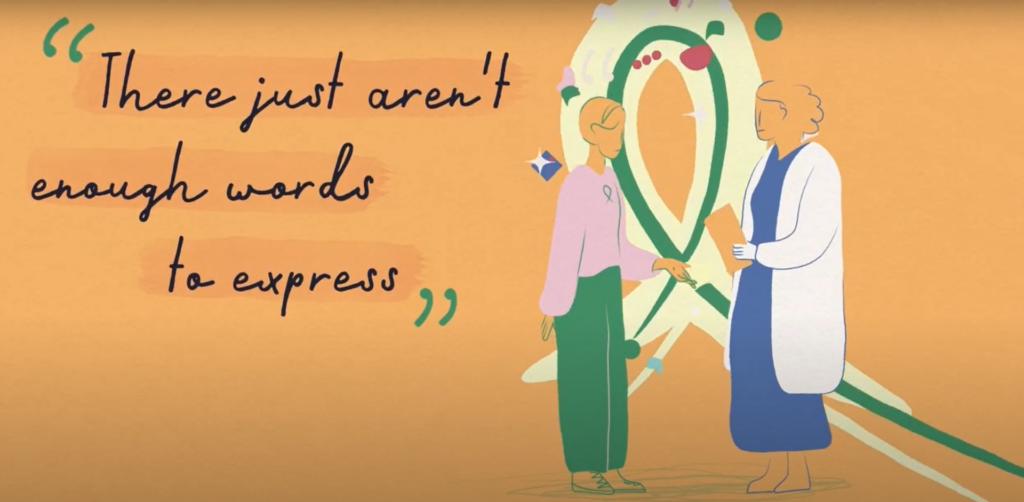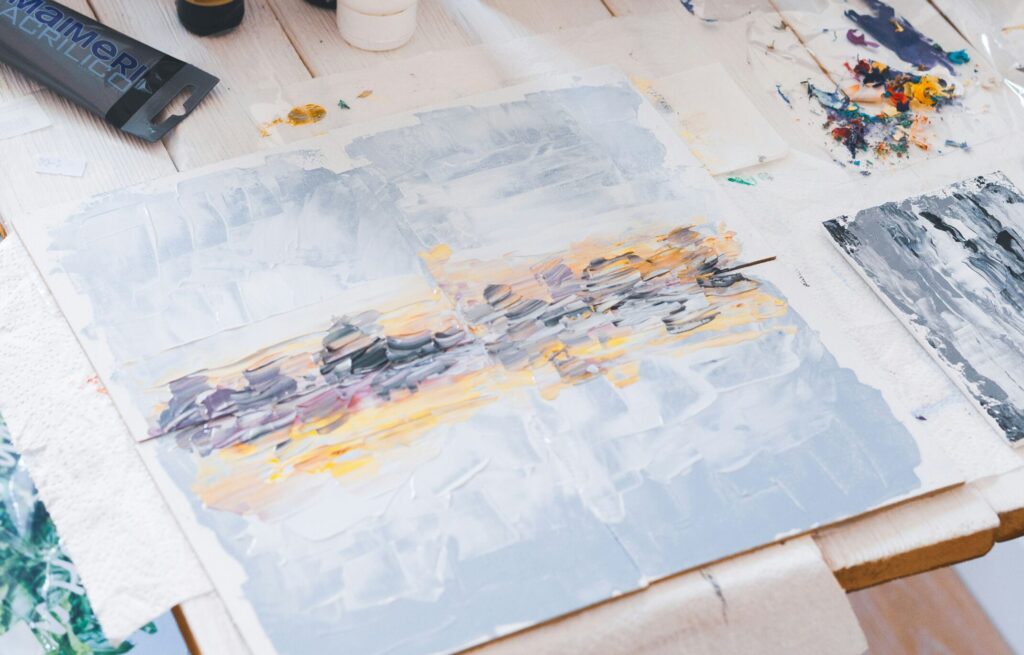How can art therapy help people affected by cancer?
Article
One in two of us will develop some form of cancer during our lifetime. While art therapy is not a treatment for cancer, research shows it can help your psychological wellbeing and help you to cope better with the stress, distress and pain that cancer can bring.

The emotional and psychological impact of cancer
Being diagnosed with cancer and going through treatment can be major life events that can have a huge impact on us, physically, emotionally and spiritually.
Around 33% of cancer survivors globally experience depression, varying depending on cancer type, stage and where they live. And in the UK, a large-scale study of data from UK GP patient records suggests that if you’re diagnosed with cancer, you are at a greater risk of poor mental health even five years after diagnosis.
There is no evidence that our feelings can affect the cancer itself, and feeling intense emotions – such as anger, sadness and anxiety – are a very normal reaction. However, our feelings can affect the way we cope with cancer and treatment, and getting the right support can help.
What is art therapy?
Art therapy is an established form of psychotherapy. It’s delivered by trained art therapists (also known as art psychotherapists), who in the UK must be registered with the HCPC.
Alongside talking with an art therapist, art therapy uses art as a way of expressing yourself. During art therapy, you are supported by an art therapist to use art to express thoughts and feelings through art making.
How can art therapy help people affected by cancer?
Art therapy is recognised in the UK and other countries as part of the support that can be offered to you if you’re undergoing or have recently completed cancer treatment.
Research studies have reported that art therapy can help people affected by cancer cope with stress, distress and anxiety, and improved their quality of life, mood, fatigue, spiritual wellbeing and self-acceptance.

When words are not enough
For some people, the experience of cancer and cancer treatment can be so challenging that it can be indescribable.
In research studies that included interviews or feedback with people affected by cancer who have had art therapy, participants said that artmaking in a supportive environment helped them to share their distress or pain in a manageable way.
In one of the studies, someone describes how art therapy was an important way for them to express themselves, when talking no longer helped, saying:
I mean to be honest I just had got beyond talking.
Service user, quoted in Wood et al. (2013)
In a video using real quotes from people who have had art therapy, someone describes how art therapy helped her express things that words in themselves cannot. She says how, for her, ‘There just aren’t enough words for going through cancer treatment.’
Art therapy can be accessible and calming
You do not need to be good or experienced at making art to benefit from art therapy. Making art can be absorbing and calming, and it can enable us to be in the present moment, forgetting worries for a while. Whether it looks ‘good’ isn’t important!
In one study of 55 people affected by cancer, most said that art therapy was easy to take part in, enjoyable and calming.
In another study with women with breast and/or gynaecological cancer, a service user says:
I focused on the creative process and forgot any distressing things.
Quoted in Chan, N. C. T., & Michaels, D. (2022)
Art therapy can help you gain new perspectives
Sometimes creating art can help us see something about ourselves or our lives differently.
Some people interviewed in research studies came to see new perspectives on their life or felt able to express new aspects of themselves. They also said they appreciated the support of the art therapist and other group members in group art therapy.
Available support
To find out if there is art therapy available to you, you can contact your GP, social prescriber or local charities. You can also find art therapists working privately near you, through our Find an art therapist search.
Charities such as Macmillan, Cancer Research UK and Maggie’s also provide resources, advice and support.
Evidence for art therapy


